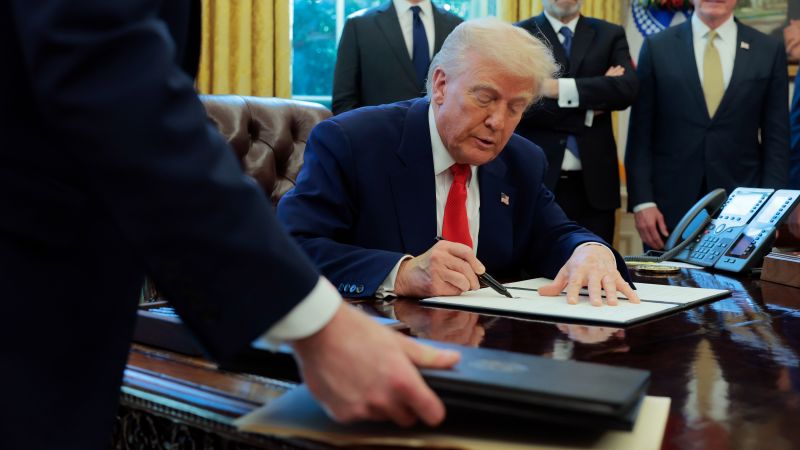President Donald Trump has been vocal about his administration’s focus on revitalizing domestic manufacturing in the United States. He has frequently praised various companies that have pledged significant investments aimed at producing a range of goods, including computer chips and automobiles, on American soil. This rhetoric aligns with a broader narrative of promoting “America First,” but questions arise surrounding the feasibility and sustainability of this manufacturing renaissance.
Despite the enthusiasm behind such announcements, the underlying reality suggests that the U.S. economy faces significant challenges. Trump’s entry into office has coincided with a seismic shift in global economic perceptions, transitioning the United States from a reliable economic partner to a nation often viewed with confusion and doubt. The swift alterations in trade policies have sown uncertainty both domestically and internationally, leading many to wonder why other nations would opt to invest in a country exhibiting such drastic policy shifts.
Ursula von der Leyen, the President of the European Commission, epitomized this sentiment when she recently stated that “The West as we knew it no longer exists.” This declaration underscores a crucial point: the U.S. can no longer be seen as the sole leader in global trade. The figures speak volumes. The U.S. boasts the world’s largest economy, with a gross domestic product nearing $30 trillion. In contrast, China lags not far behind, with an economy totaling around $18 trillion, while the European Union collectively commands a substantial economy valued at approximately $19 trillion.
The implications of these statistics became even clearer through the words of Ngozi Okonjo-Iweala, the director-general of the World Trade Organization (WTO), as she highlighted that the U.S. accounts for only 13% of global trade. Therefore, the remaining 87% of trade transpires among other WTO members, suggesting that businesses and nations may redirect their attention and investments elsewhere, diminishing the U.S.’s central role in global markets.
Trump’s tariffs, as part of his broader strategy to combat what he characterizes as unfair trade practices by other nations, particularly emphasize the stark reality of the lack of global consensus regarding U.S. policies. His administration has imposed tariffs that range widely, from 25% tariffs on steel and aluminum to a staggering 145% duty on certain Chinese imports. This rapid-fire approach to imposing and retracting tariffs has contributed to a climate of volatility and uncertainty among businesses and international partners, complicating their decision-making processes amid these erratic changes.
The observed consequences of these policies are not just theoretical. Many analysts, including those from Moody’s Ratings, suggest these tariffs will likely hinder global economic growth and dampen international confidence in U.S. economic strategies. Jerome Powell, the Chair of the Federal Reserve, emphasized the significance of these fundamental policy changes, indicating a lack of historical precedent for navigating such dynamic shifts. Powell’s remarks contributed to a decline in U.S. stock markets, reflecting investor anxiety regarding the implications of Trump’s policies.
Practical impacts have already been felt across industries, from tech giants like Nvidia to manufacturing firms such as Boeing, as well as consumers looking for affordable goods. Meanwhile, China has been proactive in diversifying its trading relationships since the onset of the trade war during Trump’s earlier tenure, reducing its reliance on the U.S. market.
As the global landscape shifts, countries such as Canada are responding by reevaluating their relationships with the United States. Many Canadians are choosing to cancel trips to the U.S. in protest against Trump’s trade policies, and Canadian Prime Minister Mark Carney has engaged with von der Leyen to fortify economic ties with Europe.
Emphasizing the need for robust partnerships, both von der Leyen and Christine Lagarde, head of the European Central Bank, have advocated for a unified European stance in light of evolving U.S. policies. They stress that predictability and reliability in trade relationships hold great value—qualities they believe Europe embodies and that are increasingly sought after by other nations.
Considering these dynamics, it becomes evident that the global economic balance has been disrupted, rendering the U.S. not just another player in a previously straightforward trade game but rather a source of uncertainty that requires adaptive strategies. The evolving sentiment among nations to strengthen ties with one another while navigating the complex web of U.S. trade policies underscores a profound shift in the global order.



